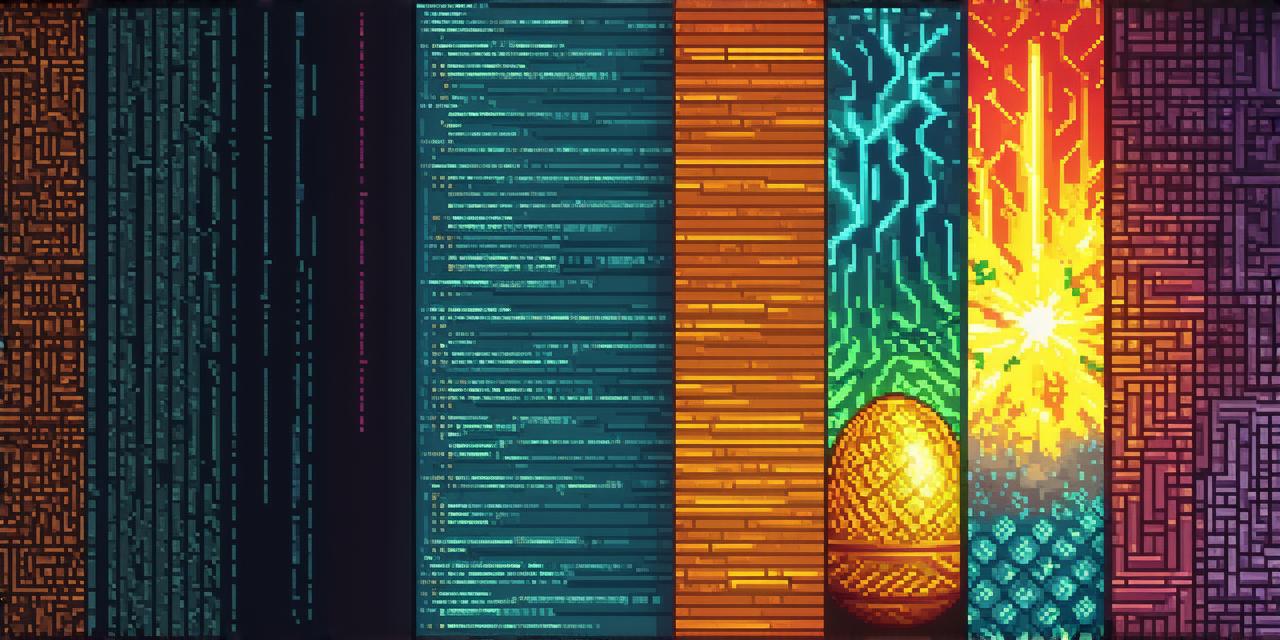Introduction
The world of video games is vast and diverse, with countless different genres, styles, and mechanics for players to explore. But what if you want to create your own video game? Whether you’re a seasoned programmer or just starting out in the field, creating your own game can be an incredibly rewarding experience that allows you to express your creativity and share it with others. In this article, we will discuss the steps involved in creating your own video game, including research, design, development, testing, and publishing.
Research

Before you start designing your game, it’s important to do some research on the genre and style of game you want to create. This will help you understand what players are looking for in a game like yours and give you a better idea of what features and mechanics you should include. To conduct research, you can read articles, watch videos, and play other games in the same genre as your desired game.
Additionally, conducting surveys or focus groups with potential players can provide valuable insights into their preferences and expectations.
Design
Once you have a good understanding of what players want in a game like yours, it’s time to start designing your game. This involves creating a concept document that outlines the basic goals, mechanics, and features of your game. You should also create wireframes or mockups of your game’s user interface (UI) and visual design.
It’s important to keep in mind that your design should be intuitive and easy for players to understand. Additionally, it’s a good idea to involve other developers or beta testers in the design process to get different perspectives on your ideas.
Development
With your design in place, it’s time to start building your game. There are several programming languages you can use to develop a video game, including C++, Java, and Python. You will also need to choose a game engine, such as Unity or Unreal Engine, which provides pre-built assets and tools for creating games.
Depending on the complexity of your game, development can take anywhere from a few months to several years. It’s important to stay organized and document your progress throughout the development process, as this will make it easier for other developers to understand what you’ve done and where you need help.
Testing
Once your game is complete, it’s essential to test it thoroughly to ensure that it works as intended. This involves finding and fixing bugs, balancing gameplay mechanics, and ensuring that the game is optimized for different devices and platforms.
It’s a good idea to involve beta testers in the testing process, as they can provide valuable feedback on your game and help you identify areas where improvements can be made.
Additionally, it’s important to test your game on multiple devices and platforms to ensure that it runs smoothly and looks good on all of them.
Publishing
Finally, once you’ve tested and refined your game to your satisfaction, it’s time to publish it for players to enjoy. There are several ways to publish a video game, including self-publishing or partnering with a publisher.
Self-publishing can be an excellent option if you have the resources to market and promote your game yourself. However, partnering with a publisher can provide access to a wider audience and more resources for marketing and promotion.
FAQs
What programming languages are best for creating video games?
There are several programming languages that are commonly used for creating video games, including C++, Java, and Python. The choice of language will depend on the complexity of your game and your team’s experience with different languages.
Do I need a game engine to create a video game?
While it’s not strictly necessary, using a game engine like Unity or Unreal Engine can make the development process easier and faster by providing pre-built assets and tools for creating games.
How long does it take to create a video game?
Development times can vary greatly depending on the complexity of your game and the size of your team. Some small games can be completed in just a few months, while larger, more complex games can take several years to develop.
What is the best way to test my video game?
It’s important to involve beta testers in the testing process, as they can provide valuable feedback on your game and help you identify areas where improvements can be made. Additionally, it’s important to test your game on multiple devices and platforms to ensure that it runs smoothly and looks good on all of them.
Conclusion
Creating your own video game can be a rewarding and challenging experience that allows you to express your creativity and share it with others. By conducting research, designing an intuitive user interface, developing your game efficiently, testing rigorously, and publishing effectively, you can create a high-quality video game that players will love.



